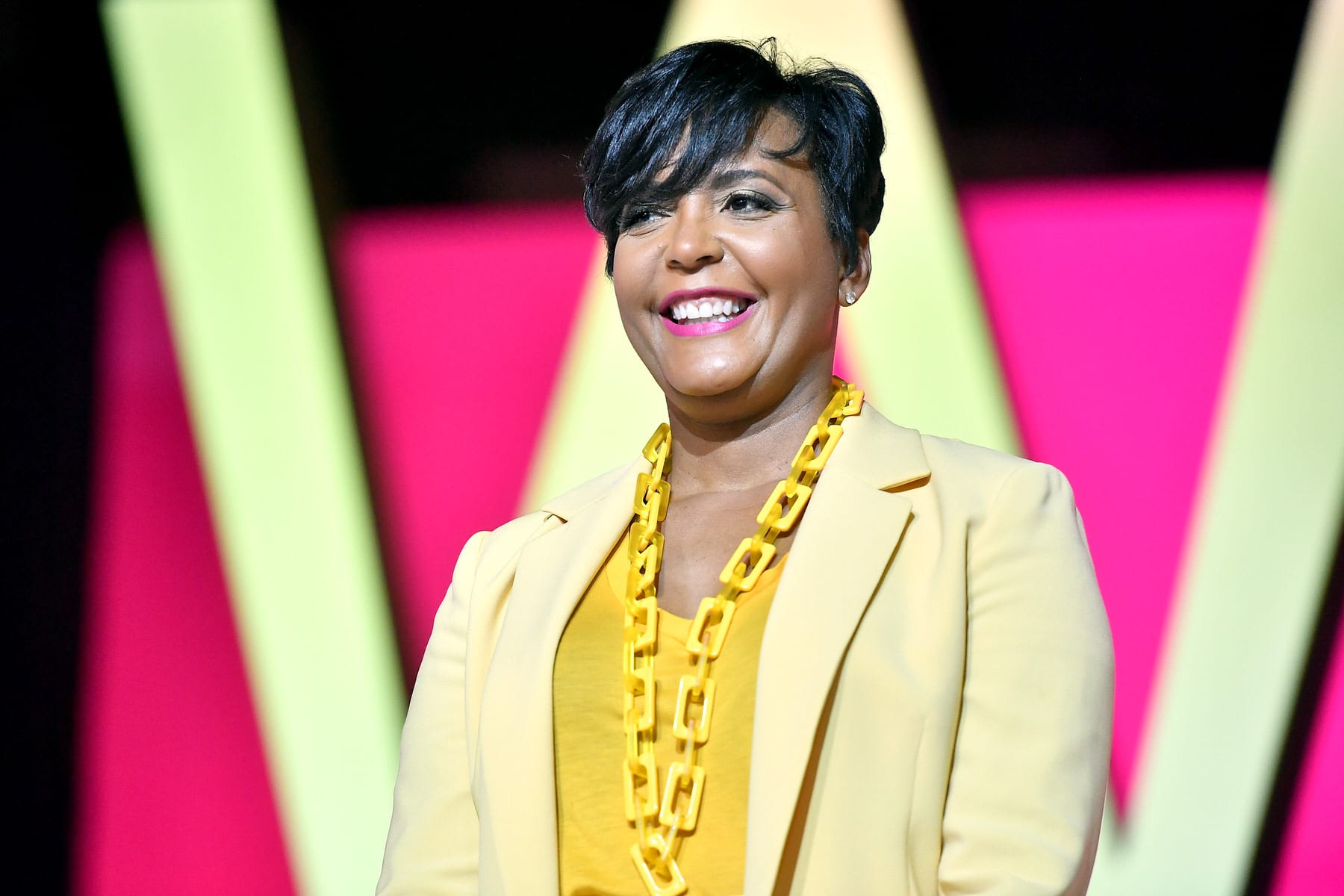Editor-at-large Errin Haines spoke to a powerhouse panel of Black politicians and community leaders about something she repeatedly saw while reporting during the 2020 election cycle: Black women’s centrality in U.S. politics.
“I repeatedly came back to a theme in my reporting that Black women are the backbone of our democracy,” Haines said. “They have been working to form a perfect union to benefit everyone since before they even had access to the ballot, access that Black women have been defending ever since.”
A record number of Black women are currently serving in Congress and leading major American cities. For the first time, a Black woman is the second-most powerful person in the country. And during a pandemic that shuttered businesses and isolated millions, Black women organizers worked to bring record numbers of Black voters to the polls — even while facing disproportionate economic turmoil, mental health burdens and now difficulty accessing the vaccine.
Haines kicked off the conversation by asking Tara Setmayer, a conservative commentator and senior advisor at the Lincoln Project, to address The 19th’s recent coverage of the ‘toxic’ culture within the anti-Trump Republican group. Setmayer said, though she was not privy to the allegations against leadership, she was “very upset” by the Lincoln Project’s response and as a result will be assuming a senior executive role within the organization.
“I think we’ve already discovered that ignoring the voices of Black women was at [the Republican Party’s] peril,” said Setmayer, who left the party after 27 years. “They lost the White House. They lost the Senate. They do not control the House. Black women saved this democracy.”
Rep. Ayanna Pressley of Massachusetts and Atlanta Mayor Keisha Lance Bottoms described how the January 6 insurrection at the U.S. Capitol exposed the threat that white supremacy imposes on the country’s democracy — a threat that Black women have personally faced for generations.
“There are many images from the day — including the noose being erected on the west lawn of the Capitol, people brandishing Trump flags, Confederate flags — that haunt me, but the one that resonates with me the most is that of the all-Black custodial staff cleaning up the mess of this violent white supremacist mob,” Pressley said. “That image haunts me because it is as metaphorical as it is literal.”
Pressley said people are finally acknowledging the labor of Black women. For decades this work was going unnoticed, but now people are honoring and even celebrating “Black girl magic and Black woman work,” which is real, she added.
Pressley described the violent threats and vitriol she faces every day as a Black woman and policymaker. Her very “existence is the resistance,” she argued and encouraged others to run and take up space.
Bottoms said she has seen sobering things in the past year that she never thought she would see in her lifetime — events and rhetoric she had read about and heard her parents talk about. But she was also encouraged by the wave of Black organizers.
“We understood that we had a power within us to make a change in this country, and we’ve done it,” Bottoms said. “We’ve done our part as we continue to do our part each and every election cycle, but there is still so much work to be done.”
LaTosha Brown, co-founder of Black Voters Matter, said Americans need to take an honest look at our society.
“Over and over again I am so grateful that the world has discovered us, right?” Brown said of Black women. “But we’ve been here all the while… in many ways we have carried democracy on our back, and not just this election or the election before that, but continuously.”
Black women turn out to vote, start businesses and enroll at colleges at higher rates than any other constituency group. And yet, Black women are at the bottom when it comes to economic and health outcomes, she said.
“The reason why I think that we fight the way that we fight is we uniquely sit at that intersection of sexism and racism, which are the two evils that I think continue to hold America from ever being its best self,” Brown said.
Haines wrapped up the conversation by asking each woman to speak on what they were looking forward to in the coming year. The consensus was optimistic. Pressley said she was encouraged by the Biden-Harris administration’s “compassionate leadership.” Setmayer was glad to see more Black women using their voices and increasing civic engagement. Bottoms spoke about the power and influence that was being gained in “our communities.” And Brown, who started her response in song, said that advancing humanity was her aim.
“I can’t underscore enough that if history is written by the winners, then this is our page to write,” Pressley said. “The most marginalized — Black women, brown, indigenous, AAPI, disabled, young people, queer — mobilized and met the moment.”






